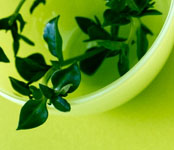|
What is IBS
Irritable Bowel Syndrome (IBS) is a common 'functional' disorder of the gut. (The gut includes the bowels.) A functional disorder means there is a problem with the function of a part of the body, but there is no abnormality in the structure. So, in IBS, the function of the gut is upset, but all parts of the gut look normal, even when looked at under a microscope. IBS causes various symptoms (listed below). Up to 1 in 5 people in the UK develop IBS at some stage in their life. IBS can affect anyone at any age, but it commonly first develops in young adults and teenagers. IBS is twice as common in women as in men.
Symptoms
The most common symptoms of IBS are:
- abdominal pain and cramping which is often relieved by emptying your bowel,
- a change in your bowel habits, such as diarrhoea, constipation or, both,
- bloating and swelling of your abdomen,
- excessive wind,
- experiencing an urgent need to go to the toilet,
- a feeling that you have not fully emptied your bowel, and
- the passing of mucus from your rectum (back passage).
IBS in Chinese Medicine
In Traditional Chinese Medicine (TCM), IBS is considered a disharmony between the Liver and the Spleen. The Liver is responsible for the smooth flow of substances throughout the body. This flow can be upset by emotions or stress, causing stagnation of Qi (energy) or blood. The Spleen in TCM is associated with the function of digestion and transforming food into energy (Qi and Blood). The Spleen can be weakened by a number of factors, including overeating unhealthy foods, overwork, too much worry, fatigue, and lack of exercise. When the Spleen is weak and Liver Qi is not moving smoothly, a number of other conditions can arise that manifest as symptoms of IBS. Practitioners of acupuncture or TCM may use a variety of modalities to correct a liver/spleen disharmony. They may use acupuncture, Chinese herbs, dietary therapy and lifestyle changes to facilitate healing of this condition.
Acupuncture for IBS
Thousands of acu-points exist in the body, and each one is associated with a specific internal organ or organ system. As the acupuncture needles are inserted into the acu-points the patient may feel nothing, or a sensation of tingling, aching, warmth, or heaviness. Most people report no pain from the needles, just an odd or unusual physical sensation that is different but not unpleasant. The needles are often stimulated after insertion by being twisted. Most individual sessions lasts about 30 minutes.
From the Western viewpoint, acupuncture affects the nervous system by stimulating the release of endorphins, naturally produced chemicals in the body that block pain signals in the brain and spinal cord. Research has shown that acupuncture results in changes in the conduction of electromagnetic signals in the brain, an alteration of blood circulation within the brain that increases blood flow to the thalamus (the area associated with relaying pain and other sensory impulses), and measurable differences in the brain's output of neurotransmitters such as serotonin, norepinephrine, and of inflammation-causing substances such as prostaglandins.
Chinese Herbs
Chinese herbs can provide relief from a number of symptoms. Some of the most common areas of relief are mind fog, diarrhea, constipation, nervousness, bloating and nausea. It may take a number of doses over a number of days before the effects are seen or felt. The drugs that you purchase at a drug store prescribed by a doctor are usually quick in providing relief. The largest difference is that conventional drugs are temporary in providing relief to your symptoms, whereas Chinese herbs can provide long lasting results.
How long will the treatment take?
The number and frequency of treatments may range from a single session to several appointments a week, depending on the severity of the illness. In general, for pain relief, six sessions should result in measurable results. Treatments often become less frequent over time as the condition subsides, though maintenance sessions may be indicated at various intervals. If your condition is chronic and has been for a long period of time, you may require regularly scheduled treatments over several months.
Research & Evidence
A study in the USA (Lu B, Hu Y, Tenner S. A randomized controlled trial of acupuncture for IBS. Program and abstracts of the 65th Annual Scientific Meeting of the American College of Gastroenterology; October 16-18, 2000, New York, NY.) has directly investigated the use of acupuncture versus relaxation therapy in IBS patients. This research found that patients' quality-of-life and gastrointestinal symptom scores were improved in both group, with a statistically significant reduction in abdominal pain. However, when the patients were followed for a 4-week post-trial period, only in the acupuncture group did pain reduction persist. Furthermore, a significant reduction in stress perception was also observed in the acupuncture group, but not in the relaxation group. The conclusion drawn was that acupuncture is an effective form of treatment for IBS, particularly the pain and stress symptoms, and that its benefits exceed those of standard relaxation treatment.
Advice
Getting adequate exercise, which helps relieve stress, moves energy, regulates the bowels, and helps alleviate constipation.
Practicing stress relief measures, such as meditation, yoga, or breathing exercises is key to keeping IBS symptoms under control.
Dietary changes should be individualized, and should focus on eliminating foods that trigger symptoms and adding adequate fiber to the diet. Soluble fiber is gentler on the GI tract, and includes foods such as oatmeal, berries, and legumes like lentils and garbanzo beans. Crude fiber, such as bran and raw vegetables and their skins may be too irritating, and should be monitored as a trigger for symptoms. Other common triggers include greasy or fatty foods, diary products, alcohol, caffeine, chocolate and carbonated drinks.
Adequate sleep is important, because stress, which is the most common trigger for IBS, is aggravated by lack of sleep. In addition, adequate sleep helps the body heal and rejuvenate. |

